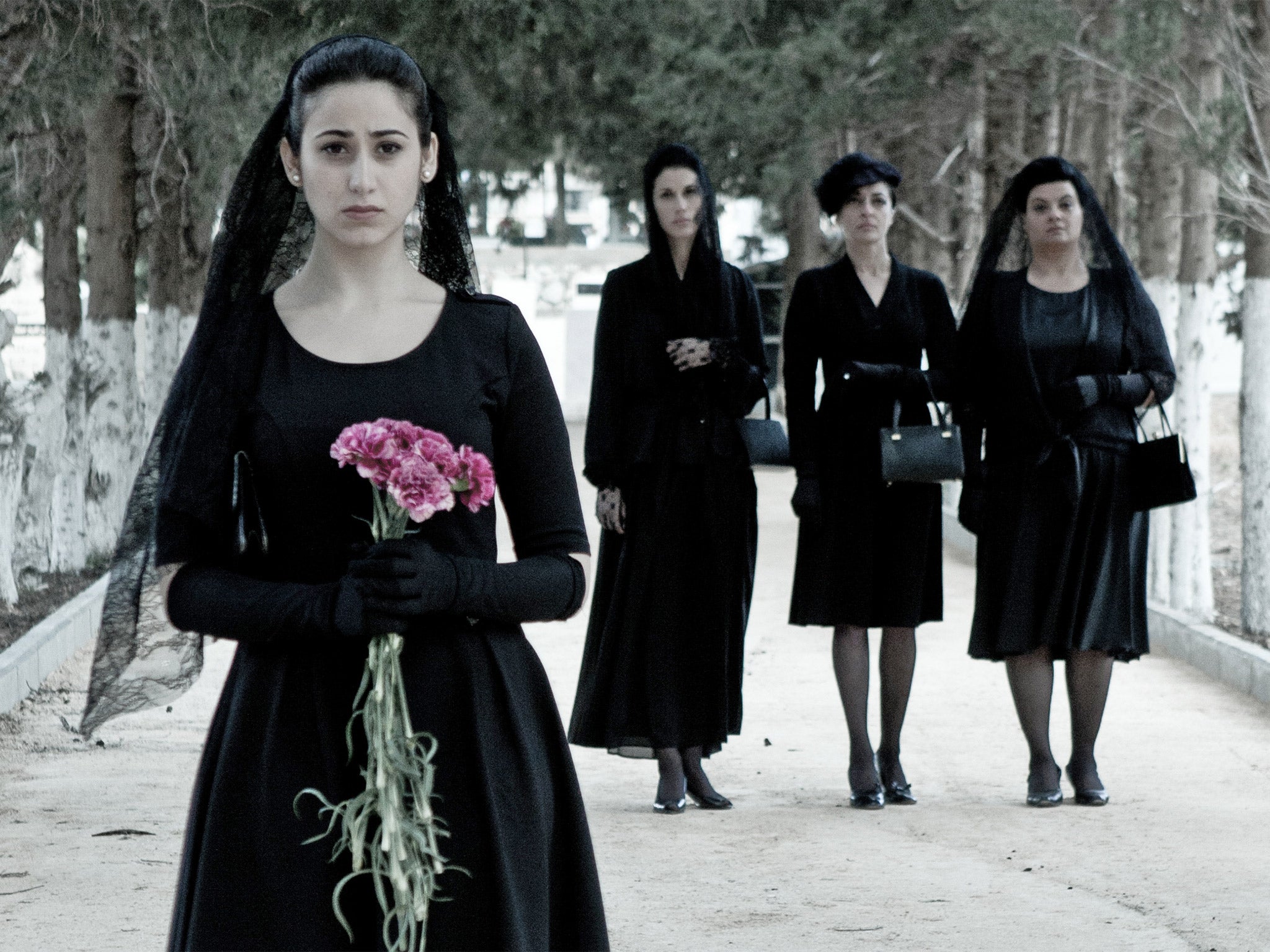Palestinian film made with Israeli funds stirs conflict

Your support helps us to tell the story
From reproductive rights to climate change to Big Tech, The Independent is on the ground when the story is developing. Whether it's investigating the financials of Elon Musk's pro-Trump PAC or producing our latest documentary, 'The A Word', which shines a light on the American women fighting for reproductive rights, we know how important it is to parse out the facts from the messaging.
At such a critical moment in US history, we need reporters on the ground. Your donation allows us to keep sending journalists to speak to both sides of the story.
The Independent is trusted by Americans across the entire political spectrum. And unlike many other quality news outlets, we choose not to lock Americans out of our reporting and analysis with paywalls. We believe quality journalism should be available to everyone, paid for by those who can afford it.
Your support makes all the difference.A film that depicts the plight of Palestinians living in the occupied West Bank, but which is funded by Israeli money, Villa Touma should have served as a rare example of mutual understanding and reconciliation.
But ahead of its premiere at the Venice Film Festival later this week, the film’s director, Suha Arraf, has claimed she is now being “blacklisted” by the Israeli authorities; they have apparently demanded that she return £230,000, because she submitted the film as a Palestinian one.
Ms Arraf, whose drama centres on three aristocratic sisters from Ramallah who are struggling to cope with life under occupation, told The Independent that she submitted the film long before the recent conflict in Gaza began.
The Arab-Israeli said she always intended it to be identified as Palestinian – arguing that as a taxpayer based in Israel, it was her right to apply to the Israel Film Fund for support, and to choose how to define her film.
Yet after Limor Livnat, Israel’s Minister of Culture and Sport, called for Ms Arraf to return the money she used to make the film – supported by parts of the Israeli media – Ms Arraf claimed she was now being accused of “stealing” the money, saying: “I am an artist and I became a criminal.
“The war in Gaza makes people totally crazy,” she said. “They are looking for a target and I am an easy target … My image is that of a criminal in Israel. They destroy my career. I am blacklisted here now.”
The irony is that Villa Touma is a chamber piece that wasn’t intended as an overtly political drama. Ms Arraf’s intention wasn’t to portray its Palestinian protagonists as either heroines or victims, but simply to show them as ordinary people.
“I wanted to bring humanity back to Palestinian characters,” she said.
However, she said she is baffled by the Israeli reaction to Villa Touma. “The whole of my film, from the first word to the end, is in Arabic. All my actresses are Palestinian. The story itself takes place in Ramallah. How do they want me to present it as an Israeli film? I don’t understand. It doesn’t make sense.”
The film has since been given a blank label, listed as neither Israeli nor Palestinian. But Katriel Schory, executive director of the Israel Film Fund, has stood by Ms Arraf, and said she is entitled to the money.

Watch Apple TV+ free for 7 days
New subscribers only. £8.99/mo. after free trial. Plan auto-renews until cancelled

Watch Apple TV+ free for 7 days
New subscribers only. £8.99/mo. after free trial. Plan auto-renews until cancelled
“Katriel supported my career from the beginning,” Ms Arraf said. “I call him my ‘Jew father’. This is my feeling about this brave, amazing man.”